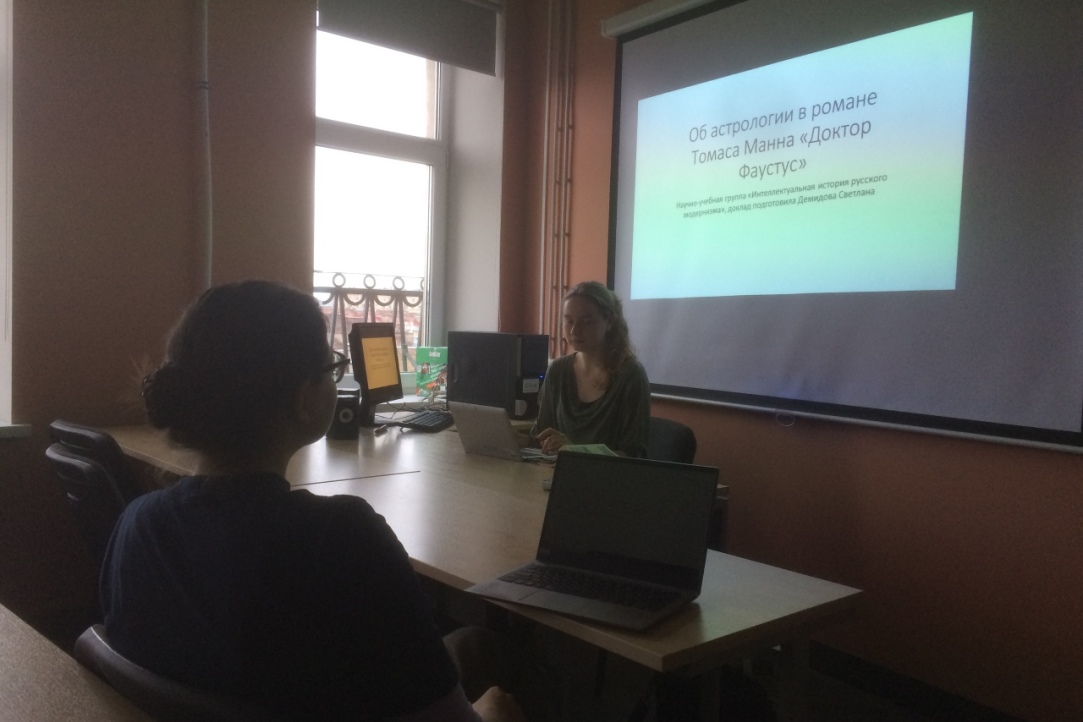The Tenth Research Seminar «Magic, Astrology, and Science in Russian Modernism»
On December 16, during the course of the tenth seminar «Magic, Astrology, and Science in Russian Modernism», Svetlana Demidova presented a report «On Astrology in Thomas Mann’s Novel “Doctor Faustus”».

In chapter XXII of «Doctor Faustus», when Leverkühn conveys his views on the composition to Zeitblom, a peculiar term «Konstellation» appears that is applied to the position of accords. The astrological connotations of the word do not go unnoticed by Zeitblom, and therefore a connection between the technique of composition and a set of beliefs in stars and numbers is created in the text. Ruprecht Wimmer in his commentary on the novel points out that this passage has its origins in the fragment of Theodor Adorno’s «Philosophy of New Music», where he argues about the inner proximity of the twelve-tone technique and superstition. In her presentation, the speaker, relying on the corpus of essays and letters of Arnold Schoenberg, commented on a few other aspects that illustrate the fact that music and astrology were deeply intertwined for the members of the Second Viennese School.
One of the premises of Schoenberg’s interest in astrology was his long-term acquaintance with Oskar Adler, the author of the series «Astrologie als Geheimwissenschaft. Das Testament der Astrologie». Recommending Adler’s abilities in one of his letters, Schoenberg highlights a «purely scientific» nature of astrology, comparing this sphere of knowledge to history. In one of the earlier letters to Wassily Kandinsky, written in 1923, Schoenberg expresses his firm belief that historical processes are «written in the stars» and depend on the higher powers. The speaker has examined the quotes which allow to conclude that those ideas were similar to Schoenberg’s notion of composition introduced in his essay «Hauer’s Theories» (1923). In the essay, the composer sketches a parallel between the laws of the cosmos and the laws of the human mind, and, as a consequence, the laws of music. For Schoenberg, the notion of «law» appears to be central to the theory of the twelve-tone composition, and in those regards, one might observe a comeback to the platonic idea of «nomos», which refers simultaneously to both law and melody. As a last point of the discussion, the speaker presented an overview of the intellectual context which was potentially relevant for Schoenberg and might have stimulated the interest towards occultism and astrology, including works of the musical theoretician Hans Kayser.
